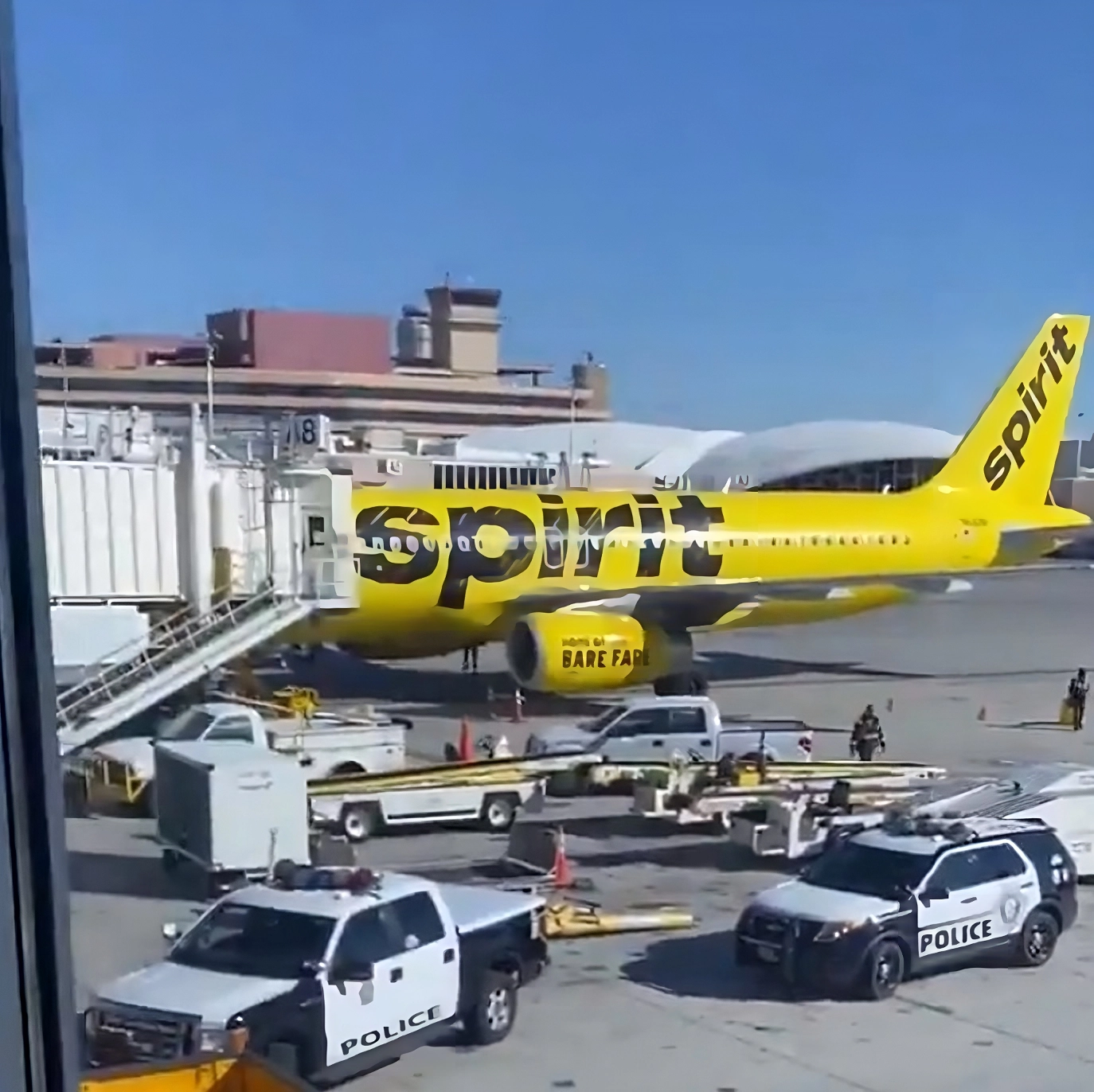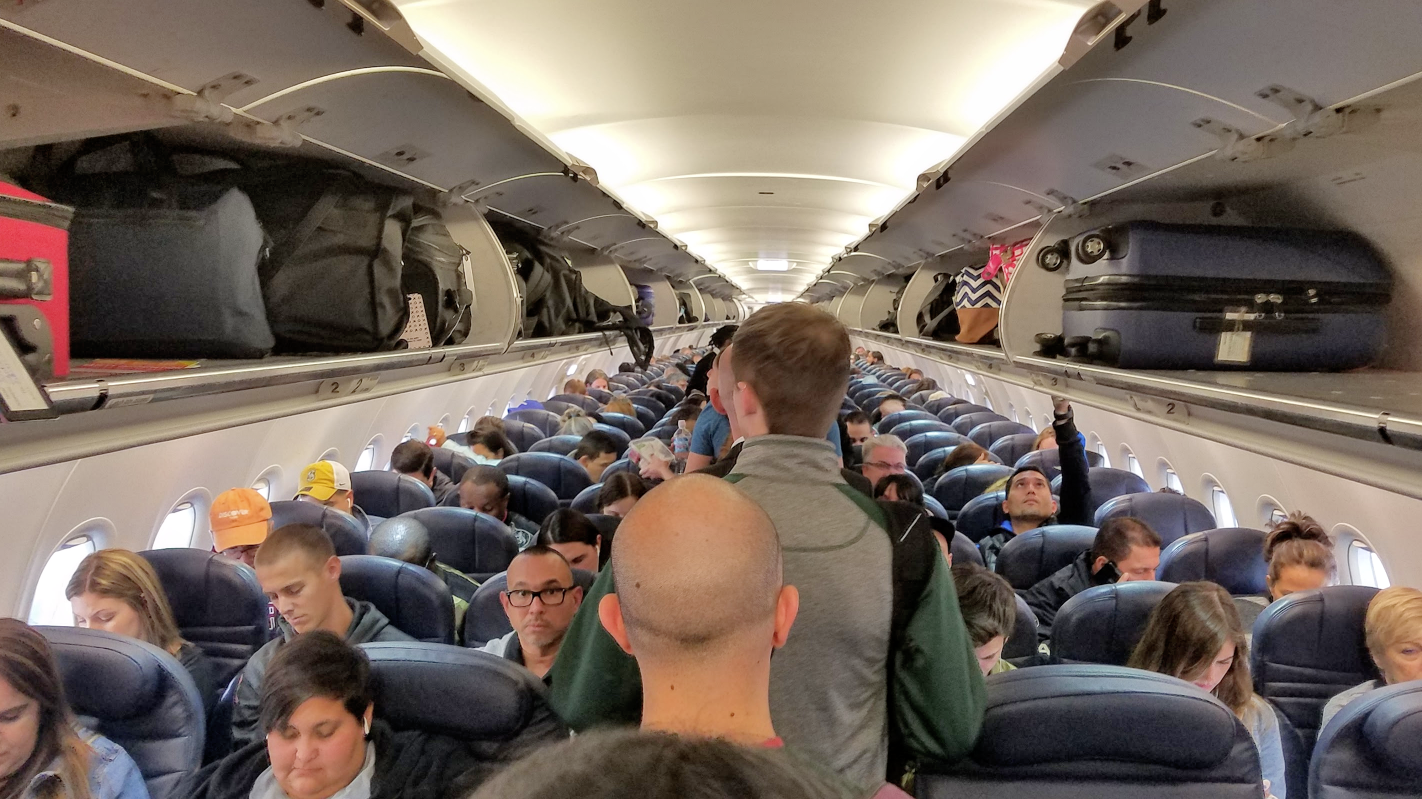Last week I wrote that Spirit Airlines was expected to file bankruptcy as merger talks with Frontier broke down. That’s now exactly what they’ve done to start off the week.
As with past bankruptcies by American Airlines (and US Airways), United Airlines (and Continental), and Delta Air Lines (and Northwest), Spirit expects to continue normal operations and honor flight credits and miles through traditional first-day motions with the bankruptcy court.
In its filing, the airline lists:
- Total Assets: $9.49 billion as of September 30, 2024
- Total Debts: $8.99 billion as of September 30, 2024
- Notable creditors include Wilmington Trust (Convertible Notes: $525 million), U.S. Department of Treasury (Unsecured Term Loan: $136 million from pandemic-era CARES Act), and several operational trade payables (e.g., Lufthansa Technik, Microsoft Licensing, International Aero Engines, Gat Airline Ground Support).
- Key shareholders include U.S. Global Jets ETF (10.96%), The Vanguard Group, and BlackRock, Inc.

Spirit has negotiated a Restructuring Support Agreement with major creditors including launching an Equity Rights Offering and pursuing a debtor-in-possession (financing arrangement: $350 million equity investment from existing bondholders and plans to convert $795 million of debt to equity. Current bondholders are planning to provide $300 million debtor-in-possession financing (superpriority loans to maintain liquidity during bankruptcy, with robust protection terms for lenders).
According to aviation analytics company Cirium, Spirit has been operationally reliable cancelling about 0.71% of flights in 2024 (behind only Southwest) and has operated approximately three quarters of its flights on-time. The carrier represents about 5% of U.S. airline capacity and is the only airline offering flights out of Latrobe, Pennsylvania, and Atlantic City, New Jersey. Spirit’s average fare in June and July was $68 one-way, excluding taxes and fees, compared to an average of over $200 for American, Delta, United and Southwest.
The airline will continue flying, though we can expect to see further route adjustments. Spirit’s mileage program (such as it is) gets continued – after all, it’s one of the most valuable assets the company has, and already mortgaged (with covenants that prevent actions that would diminish its value). Over time any reduction in service from Spirit does mean higher fares, though their aircraft would largely remain in demand.

Spirit Airlines wouldn’t have had a problem, of course, had the Justice Department not blocked JetBlue’s acquisition of the troubled carrier. It wouldn’t have mattered that its business model wasn’t a great product-market fit to the current environment, since JetBlue didn’t plan to keep the business model. JetBlue wanted Spirit for the pilots and planes to grow in ways necessitated by its partnership with American Airlines, which is expected to be back on the table with the turnover in administrations.
Spirit has set up a bankruptcy website at SpiritGoForward.com. You can find case documents, including the bankruptcy petition, here.


Buh bye Spirit Airlines.
Like I said in the earlier posting, chapter 11, restructuring, not 11, liquidation, so they will continue to fly for now.
Will EBT still be accepted as a form of payment for flights? Their target market needs to know this.
@ LTD — You’re another of the clueless people who have never flown Spirit. There is nothing wrong with their passengers.
Red flag – your new date has status on Spirit airlines.
What the DOJ wants the DOJ gets.
just a reminder that NK had a merger proposal w/ F9 which was interrupted by B6 which tried and succeeded at topping F9’s offer.
The DOJ saw a merger proposal between two ULCCs get unwound because a higher cost LCC came in because they were afraid they would be marginalized in the industry.
After B6’s proposal was rejected, F9 came back and reinitiated discussions with NK but by this summer it was apparent that NK could not successfully restructure outside of bankruptcy so F9 walked away.
F9 is not in great shape itself but has made far better decisions about when to walk away than other carriers.
It is possible that F9 and NK might merge at some point in the future but NK will probably be the financially stronger merger.
Don’t ever doubt that the DOJ acted based on a much better understanding of the industry than some want to give them credit for
Last week was my first time voting Republican. If the Trump administration start green lighting big airlines coming up NEA type schemes (like they did the last time) and buying up ULCCs so that airfares could rise, it will be my last time voting republican.
Small TYPO at the beginning of a paragraph, “The airline will flying,….”
Also, I think B6 come out ahead in the long run with the DOJ decision. Any union with NK would have eventually resulted in a Chapter 11 filing in the long run based on current conditions in the airline market.
A big issue is that the legacy carriers can offer Bare Fares with the click of a mouse and a few lines of code picking off the PAX who appreciate consistency and reliability. NK needs to adopt a new gospel of customer service & respect in order to survive in the long run or have its bones picked over by its rivals.
Great take, Gary, and here’s something to note for the future. The post-emergence company will likely be dominated by its former creditors who have become shareholders. They will obviously be motivated to monetize their investments since they’re not really in the business of speculating on risky long-term equity investments. This wasn’t some kind of fancy “loan to own” play, in other words. What I’m getting at is this: I speculate that the make-up of the new equity will mean that a merger or sale is likely in Spirit’s future, maybe with Frontier or maybe with another player that just wants the planes and the pilots. We’ll have to see what happens, of course.
atiya,
as much as people like to think otherwise, US airline mergers have occurred under both Democratic and Republican administrations and US antitrust law for the airline industry has been fairly consistently enforced regardless of the administration.
There are people that harp on the current (lame duck) administration and say things are worse because the NEA and B6/NK were both rejected – because those people can’t accept that both were just poorly devised and anti-consumer transactions which were out of step w/ what the DOJ had allowed in the past.
@Gene you must be a genius for thinking you know what airlines I have and have not flown.
Biden built that.
And no, you who shall not be named, this has not been applied equally across administrations. Please tell me the last time the 6th and 7th largest carriers were blocked from merging. Even blocking the NEA and killing off a viable competitor to UA and Delta, while them to maintain their JVs, was suspect. All non-brainwashed, reasonably intelligent people saw this at the time as a perversion of anti-trust laws. Then they allow AS, the 5th largest carrier, to buy out a competitor, because what, it’s not a threat to their UA/Delta lobbyist buddies? Or because they realized by then how badly they blew the last two? In any case, hardly consistent application of the law.
Good riddance to bad trash.
All of the four largest airlines in the USA had major acquisitions or mergers completed during the Obama regime. Three of them also started during the Obama regime and one started during the G. W. Bush regime.
Spirit has a profitability problem and a reputation problem, particularly in this day of social media. Bankruptcy won’t fix the revenue problem and it won’t stop the littany of YouTube videos of someone that gets arrested for doing (fill in the blank) while flying Spirit or Frontier. True such “events” happen on other airlines but is highly skewed towards these two.
The consumer that can afford a little better, the consumer that Spirit needs to attract more of, looks at social media and thinks no way I’ll fly a legacy or Southwest or JetBlue. No one wants to have their flight delayed because there’s a passenger that is obnoxiously drunk, unbathed, and behaving like a toddler. And there’s more of that type with Spirit and Frontier, if this is very un “pc” to point out.
Mantis: “Good Riddance To Bad Trash” will only happen on January 20th, 2029, or whenever the revolution occurs and everyone with a MAGA hat goes to the gallows. As for “Good Riddance to Human Trash”, that will happen when NK goes Chapter 7 and B6 does the same.
I don’t understand how this could happen as Spirit always had such great customer service (warning: profanity). https://twitter.com/Keepfighting250/status/1858532034127253911